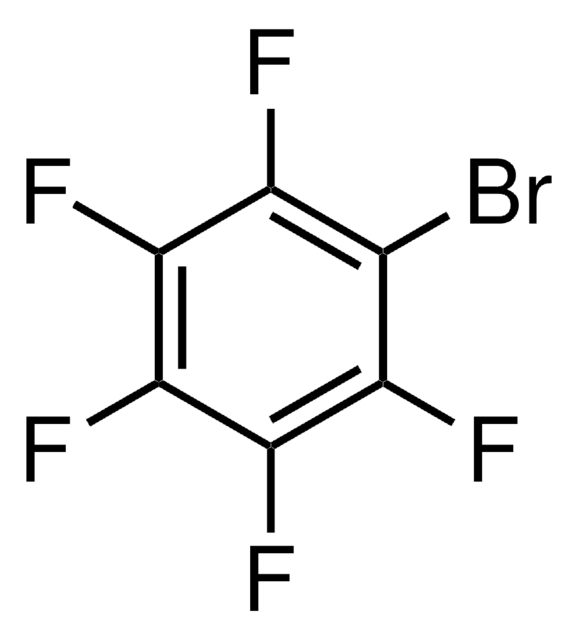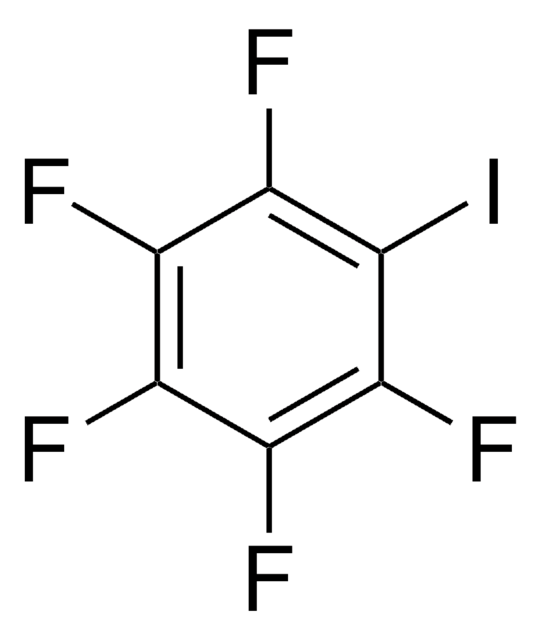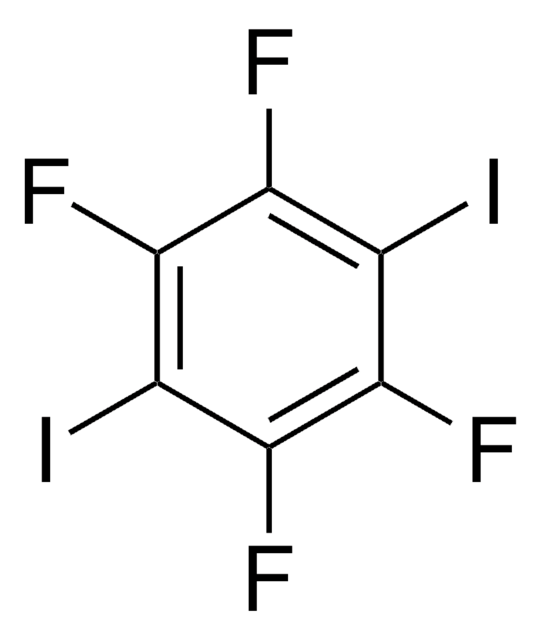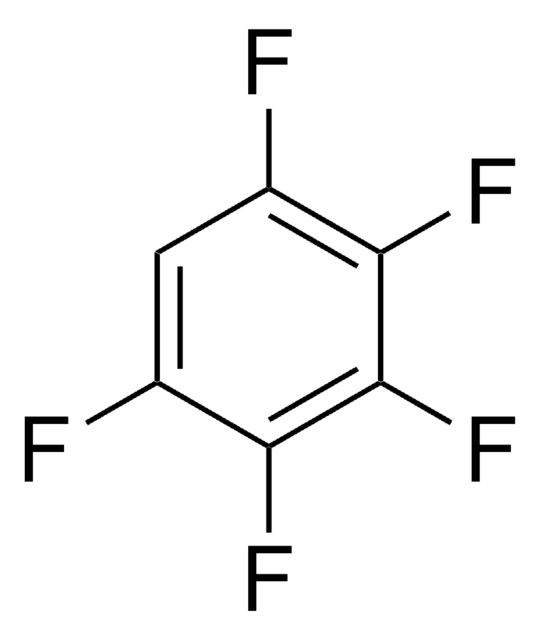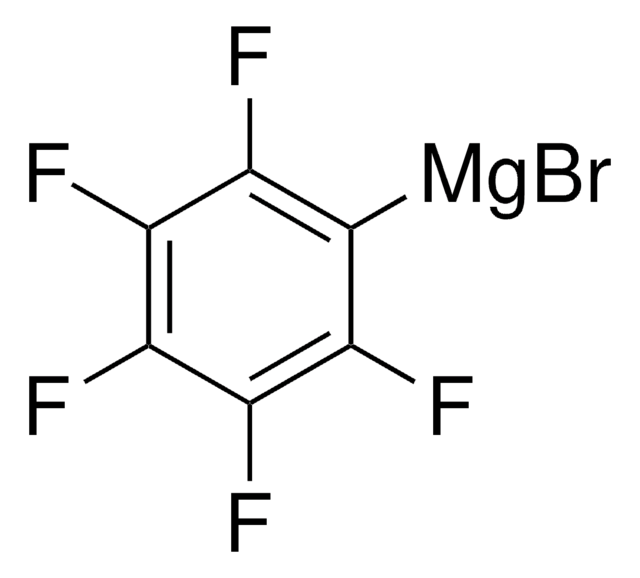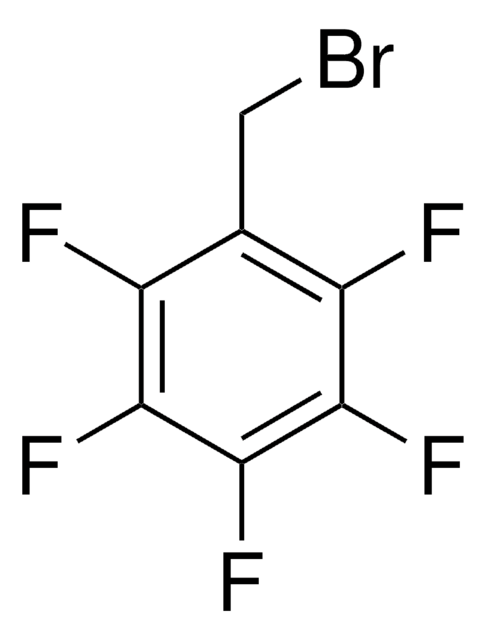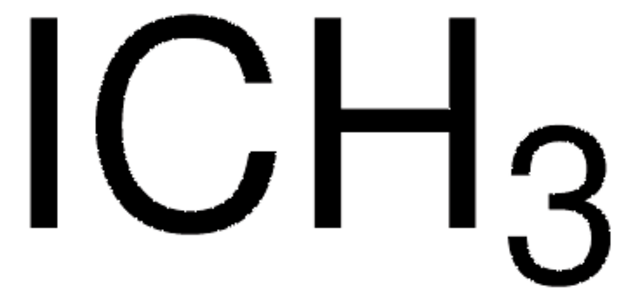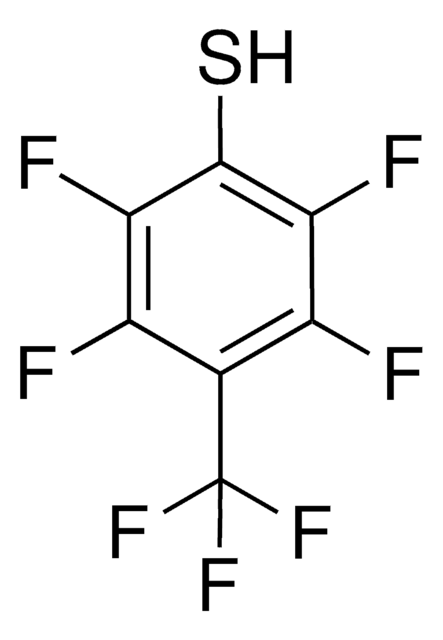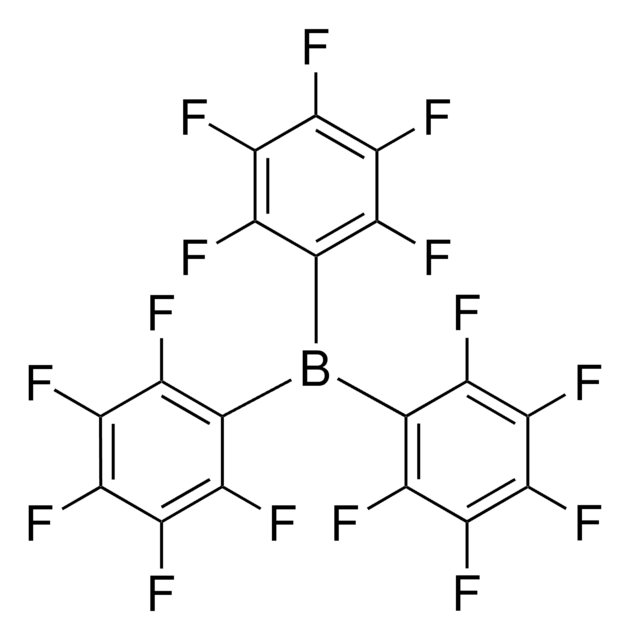All Photos(1)
About This Item
Linear Formula:
ClC6F5
CAS Number:
Molecular Weight:
202.51
Beilstein:
1819389
EC Number:
MDL number:
UNSPSC Code:
12352100
PubChem Substance ID:
NACRES:
NA.22
Recommended Products
Assay
99%
form
liquid
refractive index
n20/D 1.424 (lit.)
bp
122-123 °C/750 mmHg (lit.)
density
1.568 g/mL at 25 °C (lit.)
functional group
chloro
fluoro
SMILES string
Fc1c(F)c(F)c(Cl)c(F)c1F
InChI
1S/C6ClF5/c7-1-2(8)4(10)6(12)5(11)3(1)9
InChI key
KGCDGLXSBHJAHZ-UHFFFAOYSA-N
Looking for similar products? Visit Product Comparison Guide
General description
Reaction between chloropentafluorobenzene and strong N-bases in polar aprotic solvents and in the presence of water has been investigated. Chloropentafluorobenzene on reaction with ammonia yields 4-chloro-2,3,5,6-tetrafluoroaniline and 2-chloro-3,4,5,6-tetrafluoroaniline.
Application
Chloropentafluorobenzene has been used in the preparation of:
- 1,2-difluoro-1,2-bis-(pentafluorophenyl)dichlorane via fluorination with elemental fluorine at 128°C
- 5-chloro-1-(difluorochloro)-2,3,4,5,6,6-hexafluoro-1,3-cyclohexadiene via reaction with chlorine trifluoride at −78°C
Signal Word
Danger
Hazard Statements
Precautionary Statements
Hazard Classifications
Acute Tox. 3 Inhalation
Storage Class Code
6.1C - Combustible acute toxic Cat.3 / toxic compounds or compounds which causing chronic effects
WGK
WGK 2
Personal Protective Equipment
dust mask type N95 (US), Eyeshields, Gloves
Choose from one of the most recent versions:
Already Own This Product?
Find documentation for the products that you have recently purchased in the Document Library.
Customers Also Viewed
Błazej Gierczyk et al.
The Journal of organic chemistry, 68(8), 3139-3144 (2003-04-12)
Products of reactions between chloropentafluorobenzene and strong N-bases (DBN, DBU, TBD, and MTBD) in polar aprotic solvents and in the presence of water were isolated and identified by analytical and spectroscopic methods. The products of these dehydrohalogenation reactions are apropriate
E R Kinkead et al.
Toxicology and industrial health, 7(4), 309-318 (1991-07-01)
Chloropentafluorobenzene (CPFB) has been identified as a candidate simulant for nonpersistent chemical warfare agents. Acute toxicity studies have shown that CPFB has limited adverse effects on laboratory animals. A 21-day inhalation study of rats and mice to 2.5, 0.8, and
5-Chloro-1-(difluorochloro)-2, 3, 4, 5, 6, 6-hexafluoro-1, 3-cyclohexadiene: Synthesis and characterization.
Obaleye JA and Sams LC.
Journal of Fluorine Chemistry, 23(5), 479-479 (1983)
W D Crank et al.
Toxicology and industrial health, 8(1-2), 21-35 (1992-01-01)
Chloropentafluorobenzene (CPFB) has been proposed as an innocuous simulant for the uptake of toxic gases. Exposure to CPFB in a training exercise could be inferred afterwards from a measurement of CPFB in expired breath. To understand the relationship between exposure
Synthesis of 1, 2 difluoro-1, 2-bis (pentafluorophenyl) dichlorane.
Obaleye JA and Sams LC.
Journal of Fluorine Chemistry, 24(4), 413-418 (1984)
Our team of scientists has experience in all areas of research including Life Science, Material Science, Chemical Synthesis, Chromatography, Analytical and many others.
Contact Technical Service